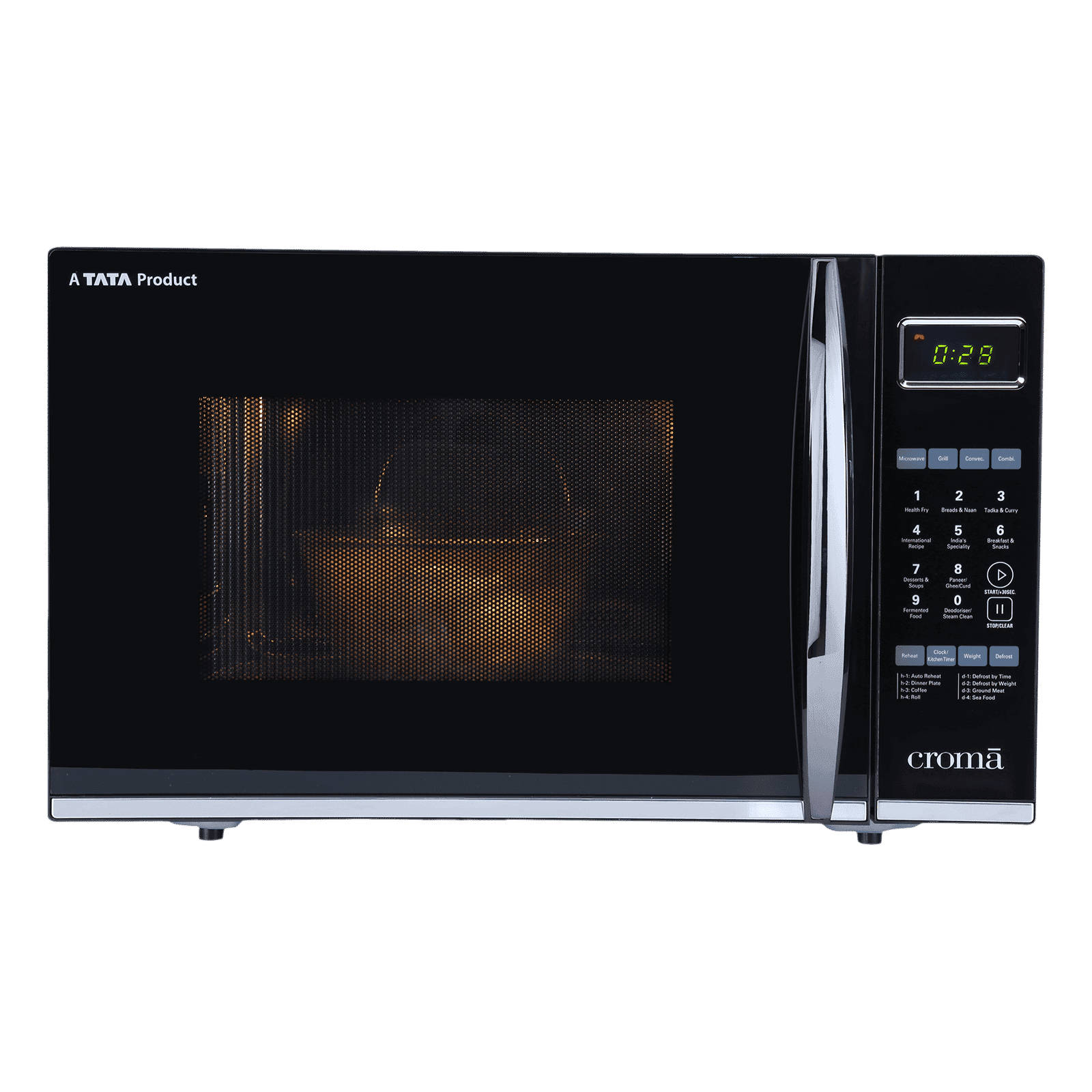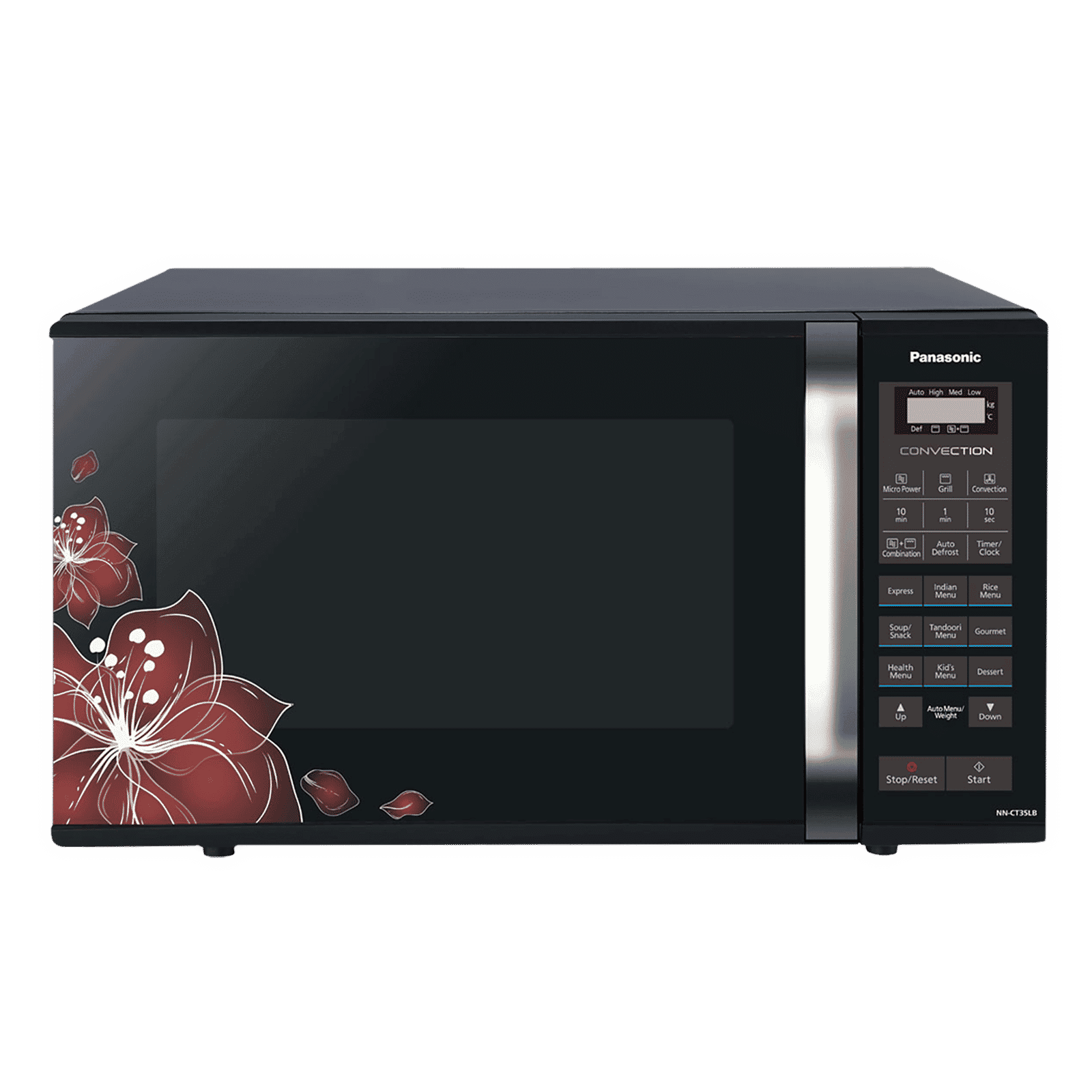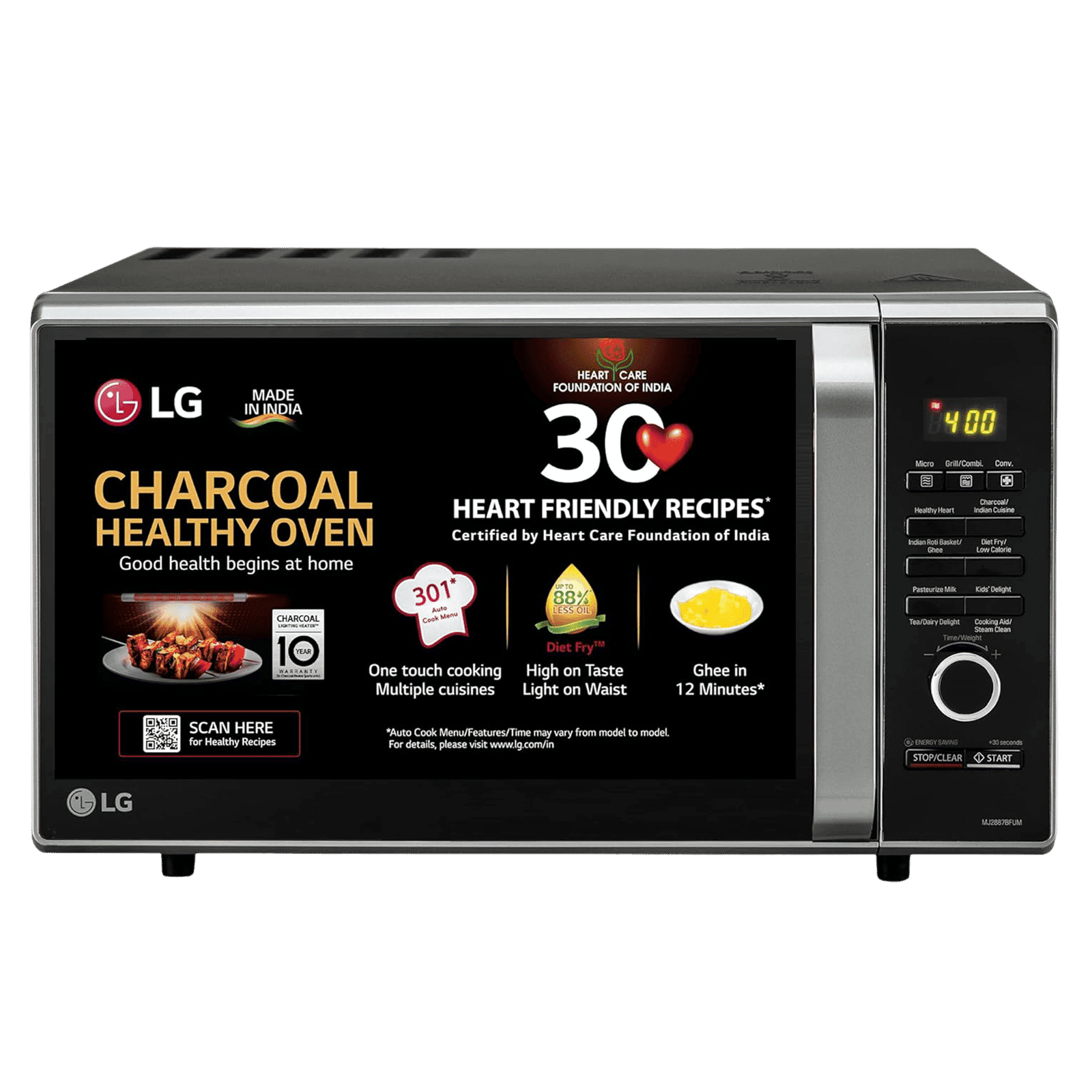
Home Appliances
•07 min read

Buy Croma 30L Convection Microwave Oven with 305 Autocook Menu (CRAM0152, Black) online at best prices from Croma. Check product details, reviews & more. Shop now!
Have you ever stood in a store or browsed online, perplexed by the array of kitchen appliances, particularly when choosing between a microwave and a convection oven? If so, you're not alone. Understanding the difference between microwave and convection ovens is crucial for making an informed purchase decision. This guide will help you navigate through the key differences, ensuring you pick the right appliance for your needs. With Tata Neu and Croma, you can explore a variety of options both online and in-store, enjoying the convenience and rewards of NeuCoins.
A microwave oven is a kitchen appliance that uses electromagnetic waves to cook food. These waves cause water molecules in the food to vibrate, generating heat that cooks the food. The primary functions of a microwave oven include reheating leftovers, defrosting frozen food, and performing simple cooking tasks. Key microwave features include quick heating, ease of use, and compact size. Microwaves are perfect for busy individuals who need to prepare meals quickly without compromising on convenience. For instance, students and young professionals often rely on microwaves for their efficiency and versatility.
A convection oven, on the other hand, uses a fan and a heating element to circulate hot air around the food, ensuring even cooking. This makes it ideal for baking, roasting, and cooking dishes that require a consistent temperature. Key convection oven benefits include the ability to bake cookies and cakes, roast meats, and cook multiple dishes simultaneously. Families and home chefs often prefer convection ovens for their ability to deliver consistent results, making them suitable for elaborate meals and gatherings.
The main difference between a microwave and a convection oven lies in their cooking mechanisms. A microwave oven cooks food using electromagnetic waves (microwave cooking), which is excellent for quick heating and simple cooking tasks. In contrast, a convection oven uses a fan and a heating element to circulate hot air around the food (convection cooking), making it perfect for baking and roasting. This fundamental difference affects the texture and quality of the food, with convection ovens providing more even cooking results.
Microwaves are best suited for reheating and cooking quick meals (microwave for reheating). They are perfect for tasks like warming up leftovers, defrosting frozen items, or preparing microwave-friendly meals. Convection ovens, however, excel in baking and roasting tasks (oven for baking), making them ideal for cooking dishes that require even heat distribution, such as baked goods and roasted meats. For tech enthusiasts, both appliances offer advanced features, but microwaves often come with smart technology for added convenience, while convection ovens provide more specialized cooking functions.

Buy Panasonic 23L Convection Microwave Oven with 61 Autocook Menus (NN-CT35LBFDG, Black Floral) online at best prices from Croma. Check product details, reviews & more. Shop now!
When it comes to energy consumption, microwaves are generally more energy-efficient as they cook food quickly. Convection ovens, while potentially using more energy due to longer cooking times, can cook multiple items at once, which may offset the energy use. In terms of cost, microwaves are typically less expensive both initially and in the long term, while convection ovens may have a higher upfront cost but offer more versatile cooking options. Consider the long-term investment and energy efficiency when choosing between the two, especially if you're budget-conscious and looking to maximize savings.
Microwaves cook food faster than convection ovens, making them ideal for quick meal preparation. However, the quality and texture of food cooked in a microwave may not match that of a convection oven. Convection ovens, while taking longer to cook, provide even heat distribution, resulting in better texture and flavour in baked and roasted dishes. If you're a culinary enthusiast who values the quality of your meals, a convection oven might be the better choice for you.
When deciding between a microwave and a convection oven, consider your cooking habits and preferences. If you primarily need an appliance for reheating and quick meals, a microwave might be the better choice. On the other hand, if you love baking and roasting, a convection oven would be more suitable. Also, consider kitchen space and appliance size, as microwaves are typically more compact. Evaluate your budget and think about the long-term investment in terms of energy efficiency and versatility. With Tata Neu and Croma, you can explore a range of options that cater to your specific needs and preferences, ensuring you make an informed purchase decision.
For tech enthusiasts, look for appliances with advanced features and smart technology. Families might prefer reliable and user-friendly options that can handle a variety of cooking tasks. Young professionals may benefit from productivity-boosting gadgets that save time. Students should consider affordable yet high-performance choices to fit their budgets. Croma offers a wide range of appliances that meet these criteria, ensuring you find the perfect fit for your lifestyle. Additionally, with the option to earn NeuCoins on every purchase, you can enjoy extra savings and rewards, making your shopping experience even more rewarding.
Did you know that microwaves can also be used for some baking tasks with the right settings? Or that convection ovens can be used to dehydrate fruits and vegetables? To get the most out of your microwave, use microwave-safe containers and cover food to prevent splatters. For convection ovens, preheating is essential for even cooking. Remember, with Tata Neu’s platform, you can browse appliances in-store or online and enjoy NeuCoins rewards for every purchase. This unique proposition allows you to check out gadgets in-store but order online at your convenience, or browse online and shop offline, all while enjoying extra savings.

Buy LG 28L Charcoal Microwave Oven with Diet Fry (MJ2887BFUM.DBKQILN, Black) online at best prices from Croma. Check product details, reviews & more. Shop now!
Microwaves use electromagnetic waves to cook food quickly, while convection ovens use a fan and heating element for even cooking. Microwaves are great for quick tasks, while convection ovens excel in baking and roasting.
Yes, but the results may not be as good as in a convection oven. For better baking results, a convection oven is recommended.
Yes, convection ovens are ideal for roasting due to their even heat distribution. They provide consistent results, making them perfect for roasting meats and vegetables.
Microwaves are generally more energy-efficient due to quicker cooking times. However, convection ovens can cook multiple items at once, which may offset the energy use.
For microwaves, wipe down the interior regularly and use microwave-safe covers. For convection ovens, clean the fan and interior surfaces to prevent buildup. Regular maintenance ensures longevity and optimal performance.
Yes, many households use both appliances to maximize their cooking options. Microwaves are great for quick tasks, while convection ovens handle more complex cooking needs.
In summary, microwaves and convection ovens each have their unique advantages. Microwaves are perfect for quick, simple tasks like reheating and defrosting, while convection ovens excel in baking, roasting, and even cooking. To explore a range of home appliances, visit Tata Neu’s platform on Croma, where you can enjoy trusted brands, advanced technology, and rewarding shopping experiences. Make an informed decision with the expert guidance and support available on Tata Neu. Remember, whether you shop online or in-store, you can earn NeuCoins on every purchase, adding extra savings to your shopping experience.